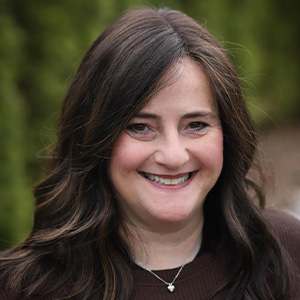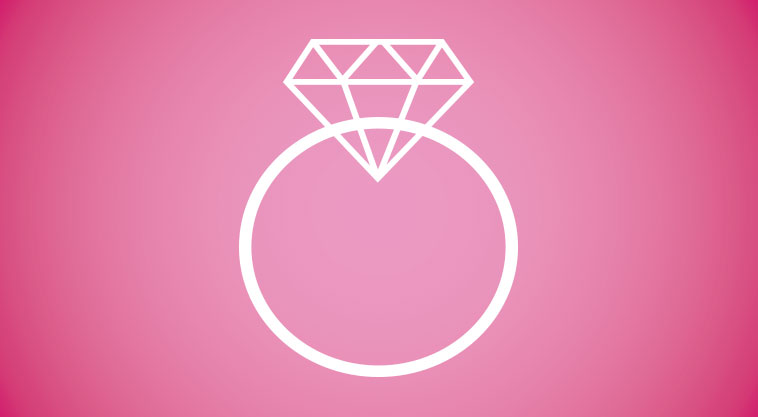“We Have to Skip Our Oldest Daughter… but How?!”

I discovered two significant patterns regarding the women who were “skipped”

I am sending this question with tears in my eyes and disbelief in my heart. My daughter is 26 years old and still not married. We’d asked her younger sister to refrain from dating until now, but in two months she will be turning 22, and we no longer feel it is appropriate to hold her back.
I don’t even know what my question is. It breaks my heart to do this, but I don’t see another choice. My older daughter has not expressed a desire either way ® she hasn’t asked my younger daughter to wait, but neither has she insisted that she begin.
How do we handle this? Any tips for mitigating the pain and easing the process?
Brokenhearted Mother
Dear Mother,
IF pages could speak, this paper would be telling the story of impossible choices. Some of the hardest moments of parenting are those when we’re asked to choose between the needs of one child over another. This is a hefty nisayon, and I bentsh you to have the siyata d’Shmaya to traverse this path b’shalom. Let me underscore the importance of daas Torah in this situation. Every family facing this dilemma needs to have the guidance of a rav who is familiar with their specific situation to guide them through this. This is too big to tread alone.
I recently had the zechus to meet with a group of older single women on the topic of “skipping” — younger siblings who marry (or even date) before their older sibling. The pain was palpable — so was the inspiration. I learned a lot, and I’m sharing it with you in hopes that we can lessen the hurt.
I discovered two significant patterns regarding the women who were “skipped”:
1) The women who were treated with respect fared significantly better than those who were not.
Hard stop.
While that seems remarkably obvious, it was actually shocking to hear how many times basic courtesy was violated. When I read your letter, I was heartened that you instinctively appreciate how painful this is for your older daughter and that you are intent on making this as palatable as possible. Two points for you! When you approach this with sensitivity you are already on your way to paving the path with peace.
There is some discussion about whether waiting for an older sibling is an actual halachah, and that is obviously beyond the purview of this column. Rav Moshe paskens that it is not, but that the older single should certainly be approached for permission before a younger sibling begins to date.
The sensitivity displayed by this response is very telling. If we can step into the shoes of the older sibling for just a moment, we can feel the sense of powerlessness they are experiencing and the potential shame. Giving them the opportunity to have some agency helps diminish those helpless feelings and allows them to shift from a place of “I have to” to a place of “I choose to.” That empowerment goes a long way to restoring the sense of worth that may have felt compromised.
One of the reflexive responses that comes up in discussing this topic is the fact that Lavan stated, “We do not do this. In our place, we don’t allow the younger to marry before the older.” This is often brought as evidence for the fact that siblings should not skip.
But since when is Lavan our rebbe for anything? I prefer to learn from our holy Imahos — Leah and Rochel. From Leah we learn about the power of ratzon, and Rochel teaches us the power of being moser nefesh for a sister. Hashem Himself acknowledged the depth of Rochel’s sacrifice when He listened only to her — not even to Moshe Rabbeinu or the Avos — at the time of the first Churban. “Min’i koleich mibechi,” Hashem said. “You can stop crying because I hear you. You sacrificed greatly, and now is the payback for all you endured.”
When a family comes with that level of appreciation, when they acknowledge to the older sister that they realize the enormity of what they are asking, perhaps she will be moved to forego her rightful place. But when the family comes with demands and says things like, “Too bad, you can’t expect her to wait forever,” they are plunging the knife in deeply. When there is an expectation that the older sister will give up her room when the younger one comes home, they are making it difficult for the older one to expand her heart on her own.
Imposing demands leads to constriction. Being respectful opens the possibility for expansion and a gracious response. Please be mindful that you are asking a lot. And then leave space for your older daughter to access her best self from a place of choice.
2) This often mirrors preexisting dynamics.
The best chance for this to play out well is in a family where a good relationship exists between the two sisters prior to dating. If the premorbid condition is one of resentment, competition, and jealousy, this experience will further exacerbate those feelings. Sometimes an older sister can feel like this request is just one more example of the younger sister surpassing her. It can feel like there is an entire history where things have gone smoothly for one and with difficulty for the other. It is hard to shake off a lifetime of bad feelings. and unrealistic to expect that to happen at such a defining time.
While it may seem ironic, this crisis can actually be a blessing in disguise. The collision of intense emotion with the potency of a major life cycle event can be the perfect storm to blow the lid off a simmering issue and expose it. A wise family (and by family, I mean you) will use this opportunity to bring healing to the family. This can be the impetus for you to look at what has been brewing for years and to address it in a way that promotes forgiveness and deep healing. It takes great wisdom, but it is a gift to the whole family for now and for future generations.
There is much potential here for growth or, chas v’shalom, for intractable pain. May Hashem grant you the wisdom to guide your family with daas Torah along this path with great sensitivity and courage to see the truth. May you be busy dancing at both of their weddings b’karov!
All the best,
Sara
Sara Eisemann, LMSW, ACSW, is a licensed social worker and a dating mentor. She lectures on topics related to relationships, personal development, authenticity, and growth. She welcomes questions, comments, feedback, and interaction at matchquest@mishpacha.com.
(Originally featured in Family First, Issue 880)
Oops! We could not locate your form.


